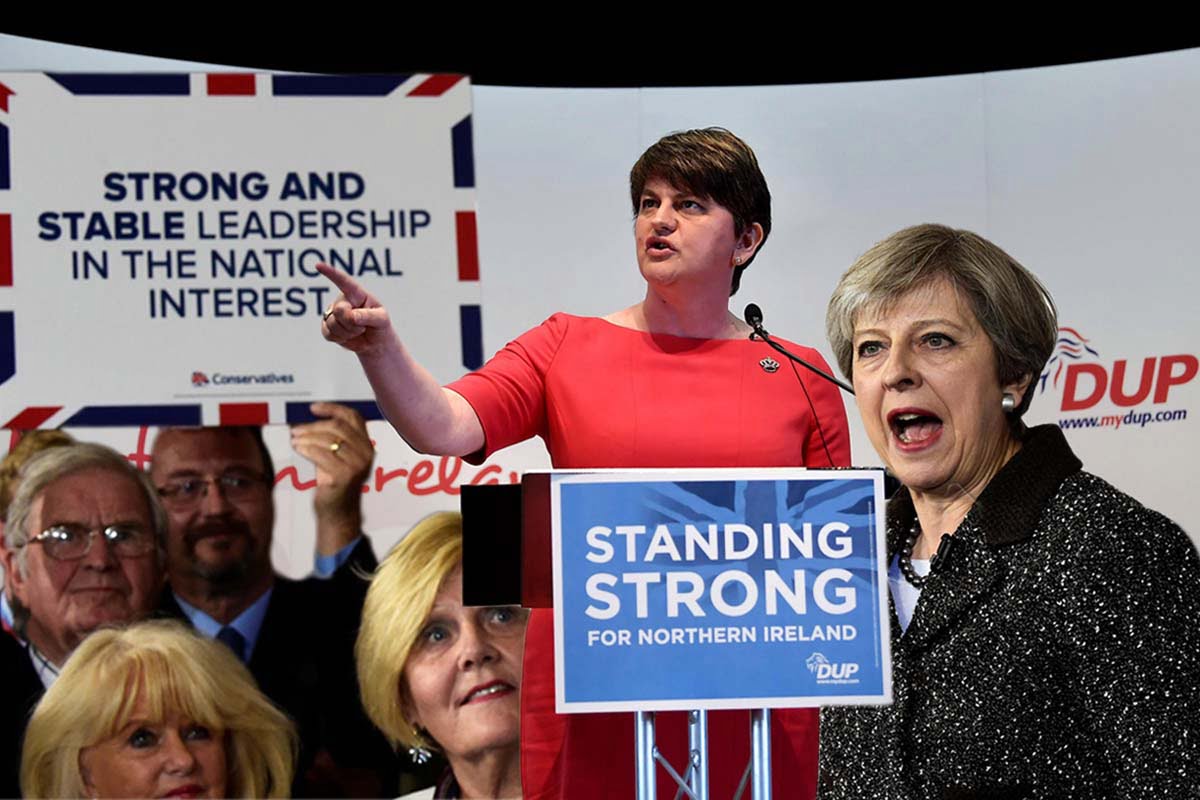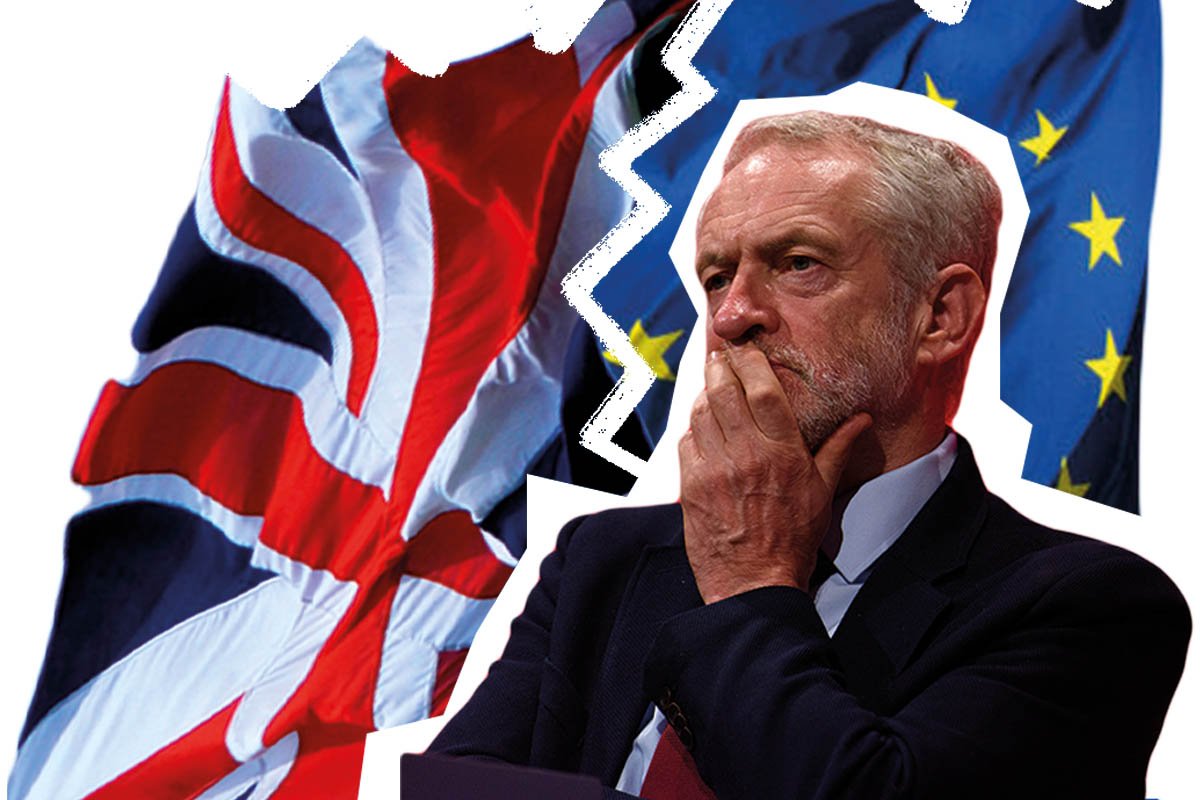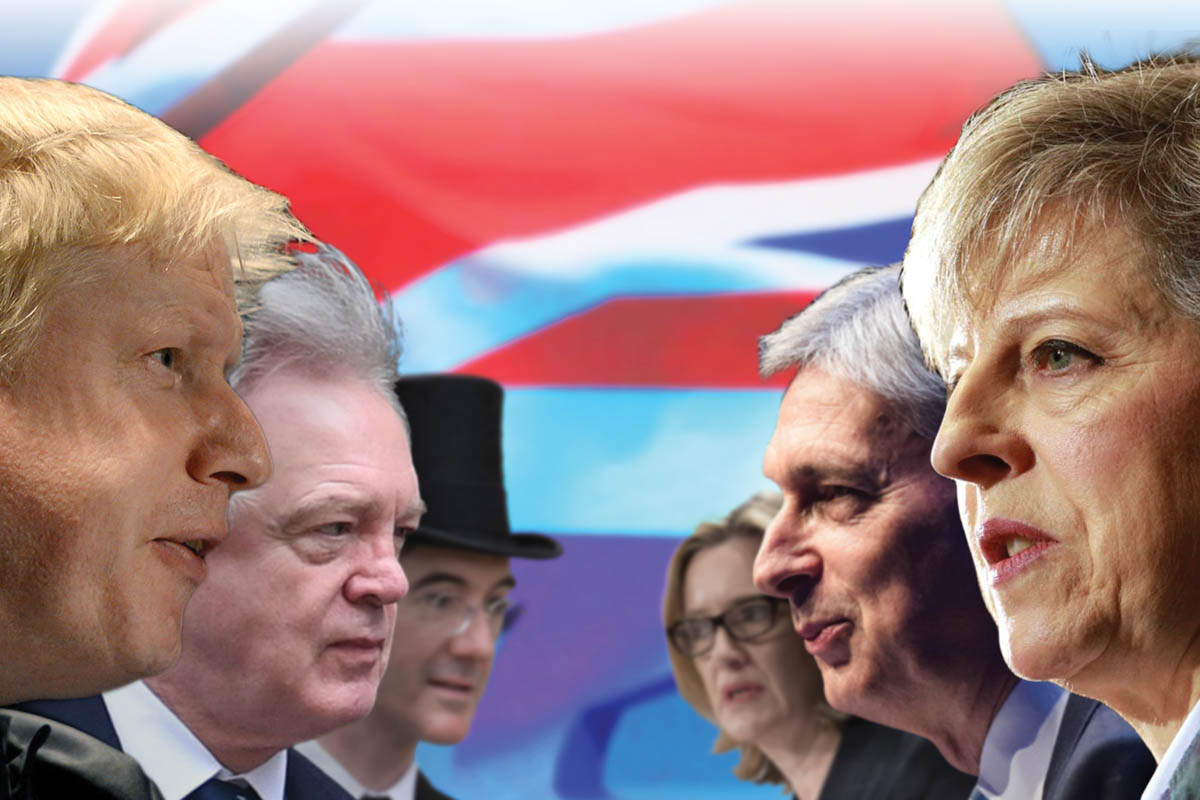The Brexit negotiations are quickly unravelling, leaving May and the Tories tangled in knots. With no solution to the question of the Irish border, the Prime Minister finds herself trapped between a rock and hard Brexit.
As the clock ticks down to a crucial EU summit next month, the crisis that permanently surrounds Theresa May’s government and its Brexit negotiations has entered into a new phase.
The agreement reached in December is already in tatters, with one senior EU diplomat saying “the fudge will not survive”. Now, with businesses in Britain considering withdrawing investment for fear of a no-deal scenario, May is being told to make a choice.
The latest impasse in the tortuous Brexit negotiations has emerged over the terms of the transitional arrangements, following the UK’s official departure in March 2019. It had been assumed that these would be the continuation of the status quo, except with the loss of the UK’s voting rights. But no one can even agree what the status quo would look like.
Brussels has stipulated that if the UK violates any terms of its transition agreement, the EU would be able to cut off Britain’s access to the Single Market. Such a proposal has provoked fury from within the Tory Party, not to mention the cabinet.
Furthermore, the EU’s lead negotiator, Michel Barnier, has also stated that “the transition is not a given” and that “If these disagreements persist, there will undoubtedly be a problem”. The UK is being made an offer it can’t refuse: accept, or face the apocalyptic scenario of a cliff-edge Brexit.
Ireland
The major flashpoint has been the question of the Irish border. Agreement was reached in December with both sides promising to avoid any hard border in Ireland. But neither explained how this could be achieved. Now the EU is demanding clarity…and it is not alone. Ireland’s Europe Minister, Helen McEntee has urged May and her team “to start looking at and…letting us know what the proposals are.”
The solution put forward by the EU is to be a fallback that guarantees “full alignment” of all regulations across the border: in effect the retention of the North in the Single Market and Customs Union regardless of the rest of the UK. However, this would produce different regulatory regimes in the North of Ireland and the rest of the UK, which the DUP has already rejected.
Since the DUP emerged from the last general election with the power to bring down the current Tory minority government, this position is effectively binding on Theresa May. As long as May persists with her commitment to leave the Single Market and Customs Union, a hard border and an even harder Brexit are very real possibilities.
Tory crisis
 That a party of 10 Northern Irish MPs has more power in Westminster than it does in Stormont (which is presently without a government) is a powerful testimony to the deep crisis into which British capitalism has plunged. But this is only part of a bigger picture of decline, not least within the governing Tory Party itself.
That a party of 10 Northern Irish MPs has more power in Westminster than it does in Stormont (which is presently without a government) is a powerful testimony to the deep crisis into which British capitalism has plunged. But this is only part of a bigger picture of decline, not least within the governing Tory Party itself.
Over decades the membership of the Tory Party has declined – not only in number, but also in composition. A survey reported in The Economist found
“Some 44% are over 65 and 71% are men. They think austerity has been a good thing…They love Brexit—and not just any old Brexit, but the full-strength sort, leaving both the Customs Union and the Single Market.”
It is no surprise then that Jacob Rees-Mogg is the favourite amongst members to succeed Theresa May, with 21% of Tory members’ vote.
With so much of her party, including her MPs, demanding a hard Brexit, May must directly appeal to this layer. One need only look at the vitriol thrown at Philip Hammond for his softer approach to see what kind of rebellion the Prime Minister would face if she were to commit to a soft Brexit, or “BRINO” (Brexit In Name Only).
However, the pressures of British big business, the avoidance of a hard border in Ireland and the bargaining power of Brussels are relentlessly pushing her in the opposite direction.
As we have explained many times, since Theresa May came to power, her only choice has been between calamity and disaster. Either she substantially accepts the EU’s demands and opens up a conflict that could end not only her government but also the Tory Party as we know it. Or she can guarantee an economic and social crisis without precedent. Experience suggests that she will try to do neither and both at the same time.
A new alliance?
 For the British ruling class, only one thing is worse than the current government: one led by Jeremy Corbyn. This prospect is the only thing that prevents a bloody civil war inside the Tory Party. It should not be surprising, therefore, that a section of capitalism’s most faithful representatives are looking for some kind of “Macron moment” to save them from both May and Corbyn.
For the British ruling class, only one thing is worse than the current government: one led by Jeremy Corbyn. This prospect is the only thing that prevents a bloody civil war inside the Tory Party. It should not be surprising, therefore, that a section of capitalism’s most faithful representatives are looking for some kind of “Macron moment” to save them from both May and Corbyn.
The latest to look in this direction was Anna Soubry, a Tory MP who warned that if May did not “sling out” the hard-line Brexiters, she would have to leave and “set up some new alliance”.
In the Financial Times, Soubry spelled out the desperate need of British business for “a safe ship they can jump aboard, with a firm pair of hands on the wheel and land in sight”. Making her pitch for “the softest of Brexit”, she warned that if business leaders are not heard in time, “we will all be marching off the gangplank”.
One MP who certainly agrees with Soubry is Chuka Umunna, a prominent Blairite. Accompanying her on the Andrew Marr show, Umunna was in complete agreement with everything Soubry had to say, adding, “The national interest has to come first”. Despite quipping with a smile that on the small issue of deadly NHS cuts he and Soubry had voted differently, he was quick to emphasise that “this is bigger than anything”.
This has become an all too familiar refrain. In reality, the alliance of so-called “moderates” in both the Tory and Labour parties is not new at all. Throughout Corbyn’s leadership it has been clear that a section of the Parliamentary Labour Party has much more in common with “pragmatic” Tories than with their own side, and will do whatever it takes to preserve the interests of British capitalism, even against a Corbyn government.
Those in the Corbyn movement must be clear on what a Labour government should stand for and how it can be protected against the intrigues of those MPs who share Umunna and Soubry’s aspirations.
That is why we give our full support to the campaign to reintroduce the pre-Blairite Clause 4 of the Labour Party constitution. Rather than managing the bosses’ Brexit, we should commit the party to the socialist transformation of society.
It is for this reason also that we call for the democratic right of Labour Party members to choose their parliamentary candidates, so that we can send socialist class fighters to parliament instead of careerists. If you agree with us, we urge you to join us in this fight.






